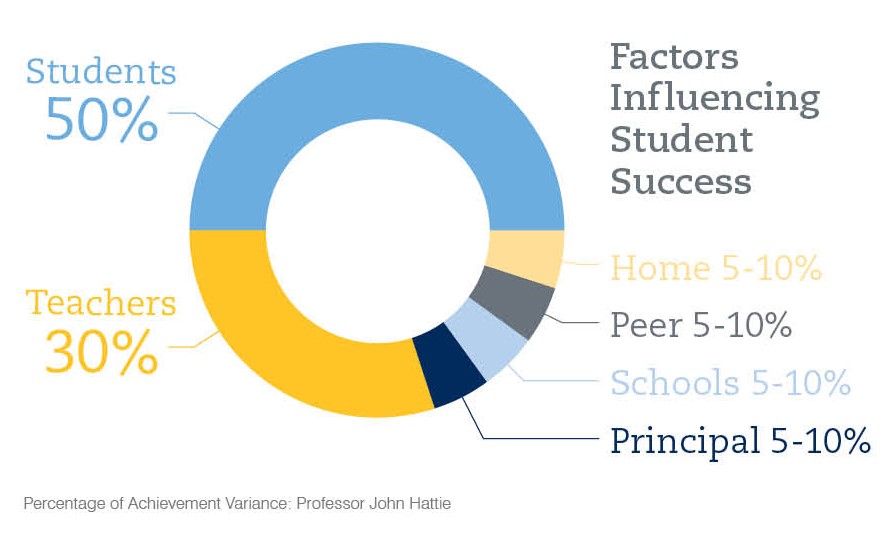There are many factors that help school and their students to achieve success. Those who are involved in educational management positions are the one who plays a vital role in the overall success of the school. According to a survey of stcatherines.net.au, it has been found that every entity of school plays an important role in the student’s life to achieve success.

While many individuals, who have pursued courses like Post Graduate Diploma in Educational Leadership, know that, they will play an important role in shaping the education outline in school and in the overall success of school as well.
However, behind the success of the school, a collaborative force that includes teachers, parents, and administrators plays an equally important role in the education system.
In this blog post, we will get to know about educational leadership and different job role in it in detail.
Before moving to the topic, can we ask you a question? Do you follow us on Social Media? We regularly share upgraded educational content, tips, feedback, and more. Check us out by clicking the profiles here – Facebook / Twitter / LinkedIn / Pinterest / Instagram / YouTube
So, without any further delay, let’s get started.
Understanding Educational Leadership
At its core, educational leadership aims to ensure academic success through process improvements, training enhancements, and material advancements. However, it is important to note that achieving this success requires the collective effort and collaboration of all stakeholders, including students, parents, teachers, policymakers, and the wider community. From a business perspective, educational leadership can be seen as a method of quality control and academic management.
Different Jobs and Their Role in Educational Leadership
To fully understand the importance of educational leadership, it is essential to explore the roles and responsibilities of key stakeholders within the education system. Each person within this community brings a unique set of skills and leverages community support to meet the needs of their educational institution. While each role is important, they must work together to achieve the goals outlined in the educational mission statements and ensure the success of all students.
1. Principal
Principals play a critical role in shaping the educational mission of a primary or secondary school. They set high expectations and standards for students and create an environment that facilitates learning. While principals were once seen as mere managers, their role has evolved to become more active and invested in the success of every student.
Effective principals invest time and energy in problem-solving, resource allocation, and community engagement. They actively work to shape the school environment and promote a sense of connection between the school and the wider community.
2. Assistant Principal
Assistant principals, previously associated primarily with disciplinary actions, now function as managers and builders of instructional leadership. They work closely with principals to create an educational environment focused on academic excellence.
In addition to enforcing rules and regulations, they act as liaisons between the principal and the larger community, resolve behavioural issues, monitor academic achievement, and ensure compliance with guidelines set by regional, state, or federal authorities.
3. Dean of Students or Faculty
Deans of students and deans of faculty perform administrative roles within educational institutions. Deans of students coordinate student events, resolve issues, and work with different departments to ensure smooth operations.
Deans of faculty focus on creating opportunities for faculty, overseeing tenure and promotion processes, hiring new faculty members, and supporting professional development. They also ensure that faculty members have access to educational workshops and necessary updates to their skills.
4. School Superintendent
School superintendents serve as vital links between school boards, individual schools, and oversight authorities. They manage the implementation of laws, rules, and policies within school districts. Superintendents are responsible for financial management, navigating political dynamics, and ensuring compliance with legal requirements.
Their role goes beyond bureaucracy, as they critically assess the needs and goals of the educational landscape under their supervision.
5. College Provost
College provosts fulfill similar duties and responsibilities as principals but at the post-secondary level. They oversee academic programs, collaborate with other departments, fundraise for the college, and support the university community. College provosts create opportunities for faculty and students to engage in leadership roles, mentoring programs, and community-focused initiatives.
6. District Administrators and School Supervisors
District administrators oversee various aspects of education, including special education programs, finances, and other specialized areas. School supervisors, similar to principals, oversee the educational vision and operational aspects of educational entities beyond primary and secondary education.
7. Instructional Coordinator
Instructional coordinators play a crucial role in designing and implementing comprehensive curriculums. They also oversee teacher-training requirements and provide support for faculty. Instructional coordinators ensure that educators have the necessary tools to effectively educate students, organize conferences and certifications, and specialize in specific disciplines or special education.
8. University Registrar
University registrars have multifaceted responsibilities. They manage course offerings, curriculum management, and student data, and serve as a bridge between academic and administrative functions. Registrars also ensure student data protection, encourage student-led initiatives, and facilitate the smooth functioning of the university.
Educational Leadership Stakeholders Can Help School to Achieve Success
Many entities are involved in an educational system that helps schools to achieve success and in the overall quality of education. Those who have pursued courses like Post Graduate Diploma in Educational Leadership have the opportunity to help on shaping the education system and overall success of the school by joining any of the above-mentioned job roles, which are available in educational leadership.
Find the right course for you and try out the course. Contact us at +91-6292150868. You can also mail us at asiancollegeofteachers@gmail.com









